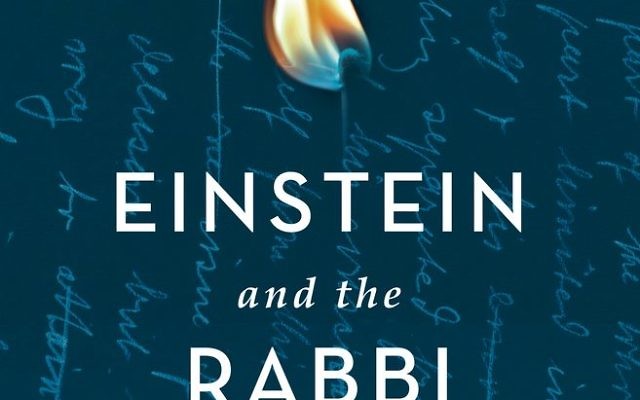3 Secrets to Add Meaning to the High Holidays
Amid the hubbub of a packed sanctuary, take time for quiet reflection on key prayers.
I am writing this essay on the last day of August, with Rosh Hashanah three weeks away.
Stores are being stocked with holiday supplies. People are ordering bottles of honey to send to friends. While they are not as popular as they once were, my local card store has a pretty nice selection of High Holiday greeting cards.
For rabbis, this is our crunch time. It’s not only the beginning of a new year, but also, traditionally in the synagogue world, the beginning of the school year and programming year.
From September through Chanukah, the fall season is filled with holidays, events, programs and adult learning classes. Synagogue life is vibrant and humming throughout the coming months. So much to prepare, so little time to do it.
Rabbis work very hard to prepare for Rosh Hashanah and Yom Kippur. Not only do we have sermons to prepare, but we also write comments and introductions to the Torah readings and new insights on the prayers of the mahzor.
I am not sure you realize this, but it is not only we rabbis who need to prepare. All of us will gain so much more from the approaching Yamim HaNoraim — our Days of Awe — if we prepare as well. So I would like to share with you three secrets to help you make your High Holidays more meaningful and enjoyable.
Secret No. 1: Come early and stay late. For me, the most enjoyable moments of the High Holiday services come at the beginning of each service and at its end.
Before the crowds arrive, I enjoy the first hour of a service — prayers thanking G-d for allowing us to begin a new day and praises to G-d for the miracles that are performed every day that we often take for granted, followed by our most important prayers, the Shema and the Amidah.
The Shema expresses our belief in G-d and our faith in life and the future. The Amidah on Rosh Hashanah asks G-d to remember us for life and to inscribe us in the Book of Life.
And as we recite the special sections of the Mussaf service only recited on the High Holidays, reflecting on life and death and always encouraging us to choose life, and then recite the concluding hymns, I am strengthened by the experience.
I encourage you to adjust your habit this year. Arrive at your congregation earlier than you usually do, and stay later. I think it will add to the meaning and spirituality of your synagogue experience.
Secret No. 2: You don’t need to read every prayer word for word. One leading Conservative rabbi was asked by a congregant, “Rabbi, how do you do it? When we recite the confessional prayer on Yom Kippur, the Al Chait, we recite it silently and then we repeat it — 10 times in total on Yom Kippur! How do you say the same thing 10 times?” The rabbi responded, “I don’t say every word and every prayer 10 times. I focus on one or two of our confessional prayers and what I can do to improve in that area.”
I would apply this advice to the entire High Holiday prayer book. This year, pick a few prayers that you will read more slowly and reflect on them and ask what they might mean to you in the coming year.
Secret No. 3: Take a soulfie. This week I had the opportunity to learn from one of Conservative Judaism’s most thoughtful spiritual commentators, Rabbi Naomi Levy. In her new book, “Einstein and the Rabbi,” she has a chapter titled “Taking a Soulfie.” Most of us take selfies. Selfies, she writes, “are always a distortion of reality. The truth is, you are a tiny speck in the face of a vast, magnificent expanse. But in a selfie, we are always disproportionately large and the vast, magnificent expanse looks like a speck.”
So Rabbi Levy suggests to us, “Every day we are being asked to do something that we are resistant to doing: to look deep within our own souls and do an honest accounting of where we are and where we are going. Where am I needed? Have I strayed from the path of my life? Have I stopped learning and growing and changing?”
On this Rosh Hashanah and Yom Kippur, let’s take a soulfie. Let’s look at the journey that we call our life and assess it and reflect on it. Are we headed in the right direction? Are we listening to the needs of our own souls and the needs of our family and friends? Can we strive for greater purpose and meaning in life?
If you follow my advice to: come early and stay late, to focus on a few of our prayers rather than speed-reading or mumbling many prayers, and take these precious days before and during the Ten Days of Repentance to complete a self-assessment, I believe we will come out of the High Holiday experience more fulfilled and enriched.
At a point in our history with so many concerns and questions left unanswered, our inward reflection may help us through these challenging times.
May we all have a shana tova filled with love, meaning and goodness.
Rabbi Paul Kerbel is the associate rabbi of Temple Beth Sholom in Roslyn Heights, N.Y. He served as the associate rabbi of Congregation Etz Chaim in East Cobb from 2003 to 2015. He is the rabbinic campaign chair of the Masorti Foundation for Conservative Judaism in Israel and serves on the Global Jewish Community committee of the UJA Federation of New York.




comments